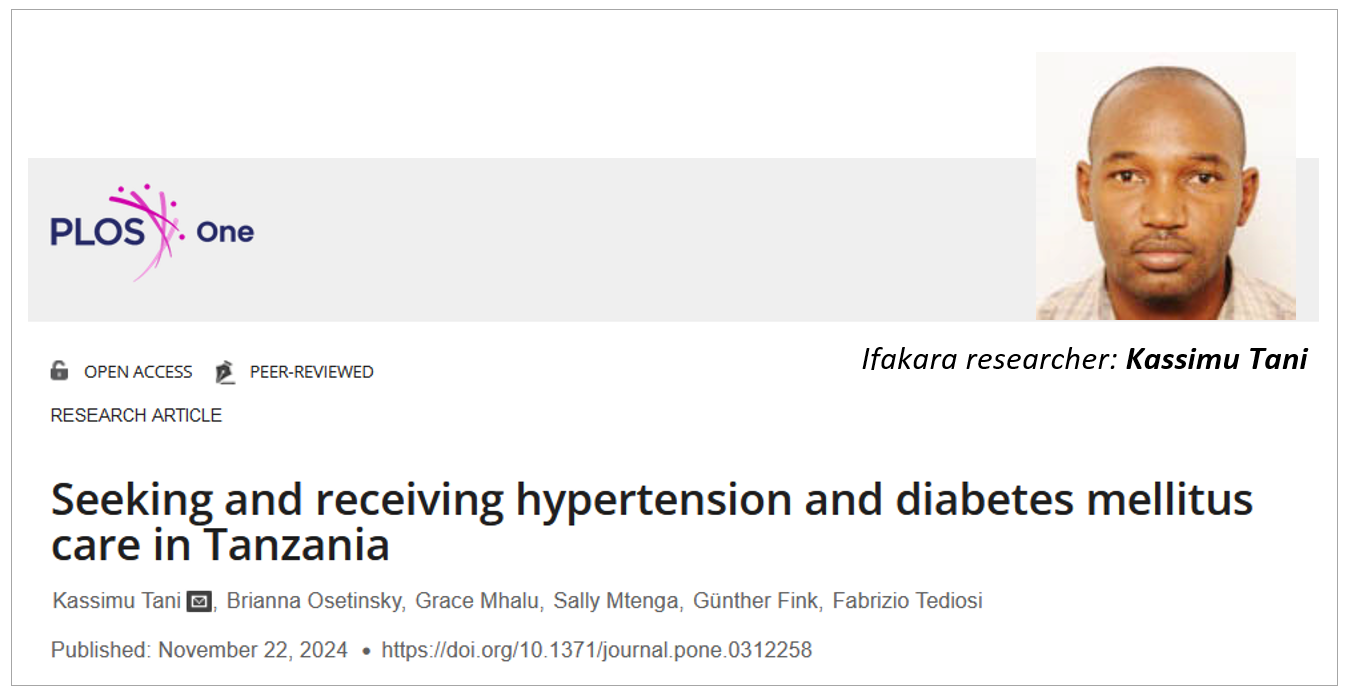
CHRONIC NCDs: Scientists for robust primary healthcare, social protection

In a stark revelation from a recent study by scientists from Ifakara Health Institute and partners, Tanzania faces a critical healthcare challenge with chronic non-communicable diseases. The research concludes there's an urgent demand to bolster both primary care and social health protection systems.
This dual approach is essential: enhancing primary healthcare for consistent service delivery and reforming insurance schemes to guarantee comprehensive care for all, transcending financial barriers in the battle against chronic diseases.
The study, published on PLOS One, was conducted in the rural districts of Kilombero and Same between November 2020 and January 2021. Kassimu Tani from Ifakara was lead author in this collaborative work which also involved researchers from the Swiss TPH, Switzerland.
The NCD challenge
In Tanzania, where more than 40% of surveyed households reported a member with hypertension and nearly 5% with diabetes, the health system is under significant strain. Despite many seeking medical help, with 69% of diagnosed patients accessing care in the last six months, the quality of care remains a concern.
Insurance and care access
The study found that people enrolled in the National Health Insurance Fund (NHIF) or those who benefited from user fees waivers were more likely to seek healthcare. This suggests that financial barriers play a big role in whether someone can get the medical attention they need.
The catch
However, even when patients made it to a health facility, they often didn't receive all the services they needed. The primary culprit? Drug shortages. This means that even insured patients might leave the clinic without all their medications or treatments.
A surprising twist
Interestingly, those covered by the improved Community Health Funds (iCHF) were actually less likely to receive all prescribed services compared to those without insurance. This indicates that insurance doesn't always guarantee better care.
The way forward
The study's conclusion is clear: there's an urgent need to strengthen both the primary healthcare system and the social health protection mechanisms in Tanzania. Better primary care would mean more consistent service delivery, while improved health insurance schemes could ensure that everyone, regardless of their financial situation, receives the full care they need for managing chronic diseases.
What this means for Tanzanians
For everyday folks in Tanzania, this means that the battle against NCDs isn't just about getting diagnosed; it's about ensuring that once you're at the doctor's, you're not turned away due to lack of medicine or incomplete services.
These findings push for a health system where everyone can manage their health without worrying about whether the clinic has what they need.
This study underscores the importance of not just opening more clinics but ensuring they are well-stocked and staffed, and that insurance does what it's supposed to - protect and serve the health of the community.
